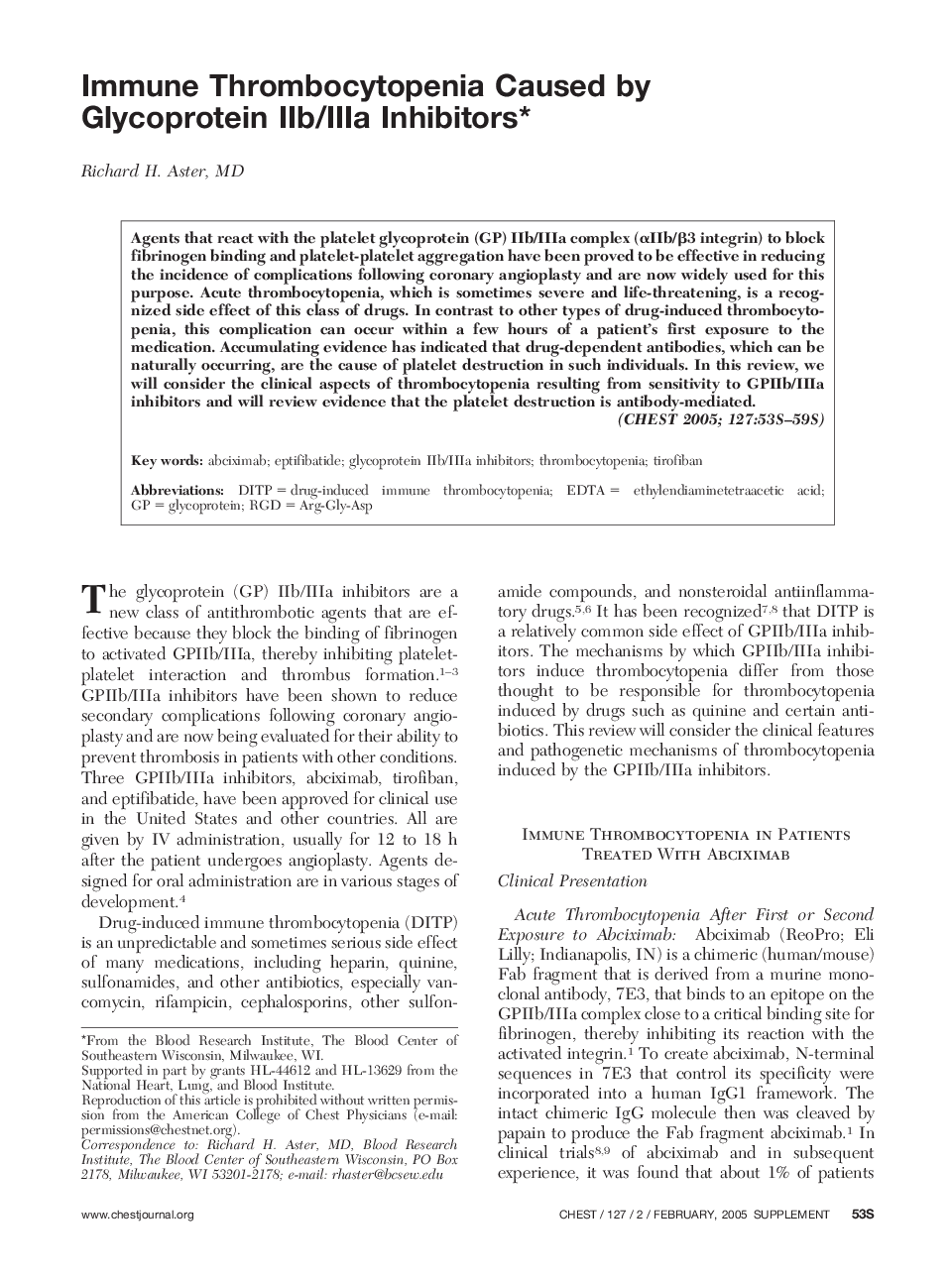| Article ID | Journal | Published Year | Pages | File Type |
|---|---|---|---|---|
| 9162180 | Chest | 2005 | 7 Pages |
Abstract
Agents that react with the platelet glycoprotein (GP) IIb/IIIa complex (αIIb/β3 integrin) to block fibrinogen binding and platelet-platelet aggregation have been proved to be effective in reducing the incidence of complications following coronary angioplasty and are now widely used for this purpose. Acute thrombocytopenia, which is sometimes severe and life-threatening, is a recognized side effect of this class of drugs. In contrast to other types of drug-induced thrombocytopenia, this complication can occur within a few hours of a patient's first exposure to the medication. Accumulating evidence has indicated that drug-dependent antibodies, which can be naturally occurring, are the cause of platelet destruction in such individuals. In this review, we will consider the clinical aspects of thrombocytopenia resulting from sensitivity to GPIIb/IIIa inhibitors and will review evidence that the platelet destruction is antibody-mediated
Keywords
Related Topics
Health Sciences
Medicine and Dentistry
Cardiology and Cardiovascular Medicine
Authors
Richard H MD,
